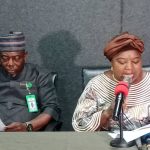A crude oil price and NSEASI correlation
 Lagos is the worst performing of the three African indices we intermittently track. Its all-share index recovered from a low of -21.6% ytd on 19 January to close the month at -16.5%, and further to -9.3% as of Friday. The pick-up in the NSEASI since the beginning of March tracks that in the crude oil price.
Lagos is the worst performing of the three African indices we intermittently track. Its all-share index recovered from a low of -21.6% ytd on 19 January to close the month at -16.5%, and further to -9.3% as of Friday. The pick-up in the NSEASI since the beginning of March tracks that in the crude oil price.
Trading values have been pitiful this year on the NSE and averaged US$11.6m ytd, compared with US$26.6m in the same period of 2015. This can be explained in good measure by the dramatic loss of buying interest from the offshore portfolio community in response to the slowdown in growth, the CBN’s exchange-rate policy and acute fx shortages.
Nairobi has benefited from the disillusionment of the foreign player with Lagos, particularly the dedicated Africa funds which have limited investment destinations. Also the Kenyan economy is growing by about 5% annually.
Johannesburg’s performance of 1.7% ytd has defied the sluggish economy, the mounting pressures surrounding the Zuma presidency and rising unemployment in the mining industry. The IMF’s World Economic Outlook in January projected growth of just 0.7% this year. (Its figure of 4.1% for Nigeria would, we understand, now be no more than 3.0%.).
The NSE would benefit above all from some sizeable new listings, and in sectors barely represented on the exchange. In time there should be some good news from the restructuring of the NNPC. We urge patience.






Leave a Reply